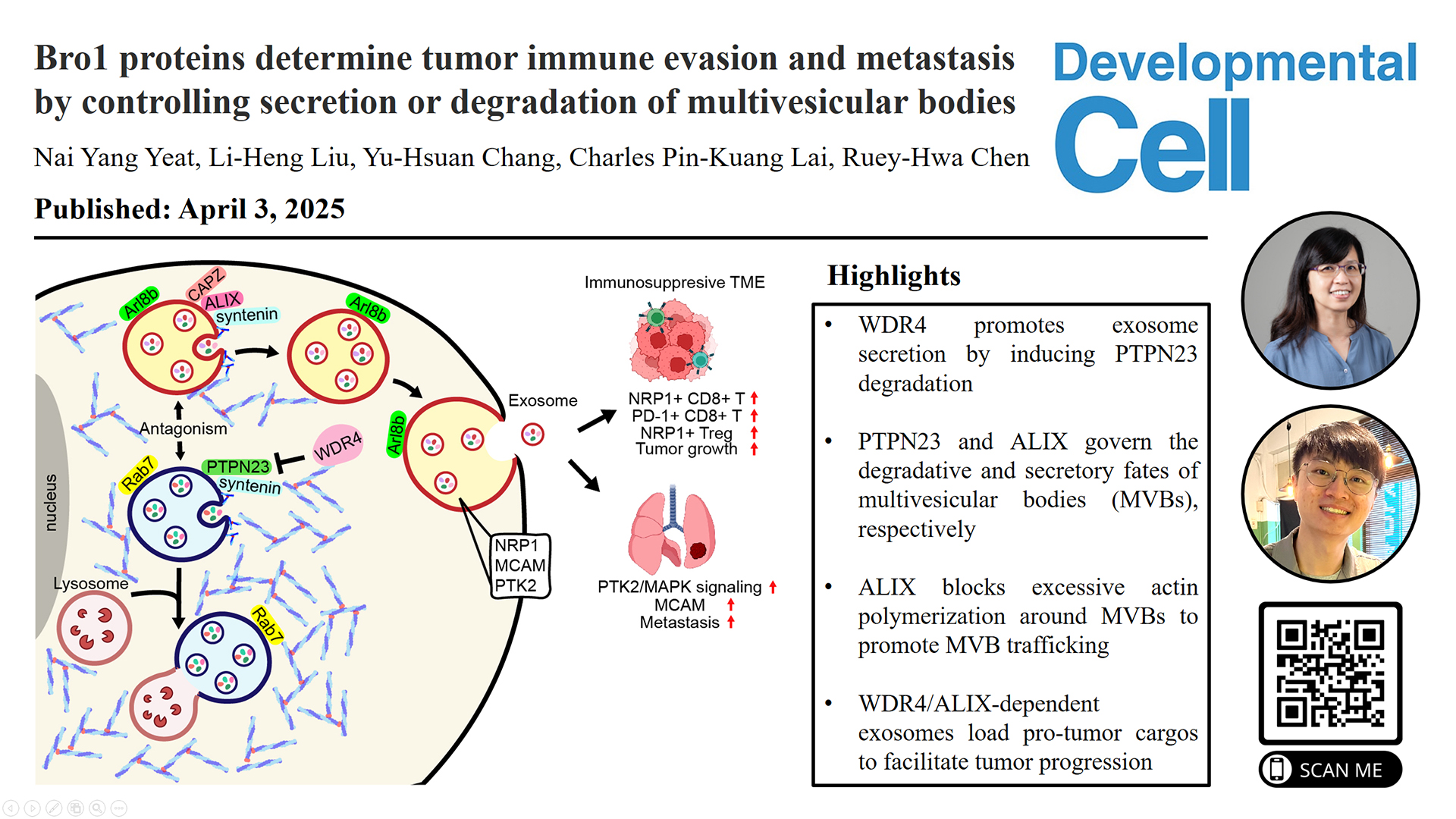
 中央研究院 生物化學研究所
中央研究院 生物化學研究所
Exosomes play pleiotropic tumor-promoting functions and are secreted by fusion of multivesicular bodies (MVBs) with the plasma membrane. However, MVBs are also directed to lysosomes for degradation, and the mechanism controlling different fates of MVBs remains elusive. Here, we show that the pro-tumor protein WDR4 enhances exosome secretion from mouse and human cancer cells through degrading the endosomal sorting complex required for transport (ESCRT)-associated Bro1-family protein PTPN23. Mechanistically, PTPN23 and ALIX compete for binding to syntenin, thereby directing MVBs toward degradation and secretion, respectively. ALIX, but not PTPN23, recruits actin-capping proteins CAPZA1/CAPZB to prevent branched filamentous actin (F-actin) accumulation around MVBs, thus enabling MVBs trafficking to the cell periphery for secretion. Functionally, WDR4/ALIX-dependent exosomes load a set of pro-tumor proteins through LAMP2A, thereby potentiating metastasis and immune evasion in mice. Our study highlights a previously unappreciated coupling between the biogenesis mechanism and the fate decision of MVBs and its importance in determining exosomal cargos, which have a profound impact on tumor progression.
